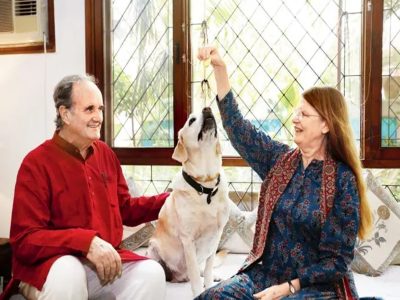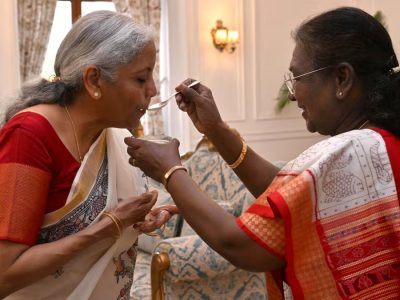Accusing the Gujarat government of overstepping its authority, the Supreme Court on Monday nullified the release order for 11 men convicted of gangraping Bilkis Bano and murdering seven of her family members during the 2002 riots, directing their return to prison within two weeks.
The bench of Justices B V Nagarathna and Ujjal Bhuyan highlighted the lack of consideration behind the Gujarat government’s remission order, questioning whether “heinous crimes against women allow for remission, irrespective of the victim’s faith or creed.”
Bilkis Bano, 21 years old and five months pregnant at the time, was assaulted while escaping the communal violence following the Godhra train burning incident in February 2002. Tragically, her three-year-old daughter was among the seven family members killed.
The 11 convicts were granted remission and released by the Gujarat government on August 15, 2022.
The bench remarked, “We invalidate the remission orders due to the Gujarat government’s overreach of power”. They clarified that the state where the crime was tried and sentenced holds the authority to decide on convict remission, which, in this case, was Maharashtra.
In a detailed judgment exceeding 100 pages, the Supreme Court emphasized that the Gujarat government did not possess the jurisdiction to pass the remission order. This misuse of authority and breach of the rule of law led to the annulment of the remission orders.
The Court also revoked its earlier order from May 13, 2022, which directed the Gujarat government to consider one of the convict’s remission plea, deeming it obtained through deceit and by concealing crucial information.
Responding to the verdict, senior advocate Vrinda Grover, representing retired IPS officer Meeran Chadha Borwankar and others, praised the judgment for upholding the rule of law and restoring faith in the legal system, especially among women.
The Supreme Court criticized the Gujarat government for not appealing against the May 2022 judgment, stressing that only the state of Maharashtra had the authority to issue remission orders.
Regarding the PIL filed by Bilkis Bano under Article 32 of the Constitution contesting the remission, the Court deemed it maintainable. The question of PILs’ validity was considered moot and left open for future cases.
Referring extensively to Greek philosopher Plato, Justice Nagarathna emphasized that punishment should aim at reformation rather than mere vengeance. She underscored the importance of education and reformation in making a criminal a better citizen and less of a burden to society, aligning with the purpose of remission policies.
Justice Nagarathna also highlighted the significance of respecting women’s rights regardless of their social status, faith, or creed and questioned the permissibility of remission for heinous crimes against women.
Last year, on October 12, after an 11-day hearing on various petitions, including one from Bilkis Bano, the Supreme Court reserved its judgment. During this period, the Court instructed the Centre and the Gujarat government to submit original records related to the convicts’ sentence remission by October 16.
Apart from Bilkis Bano’s petition, several other PILs challenged the remission and premature release of the convicts. These petitions were filed by individuals like CPI(M) leader Subhashini Ali, independent journalist Revati Laul, former vice-chancellor of Lucknow University Roop Rekha Verma, and TMC leader Mahua Moitra. (With inputs from PTI)





